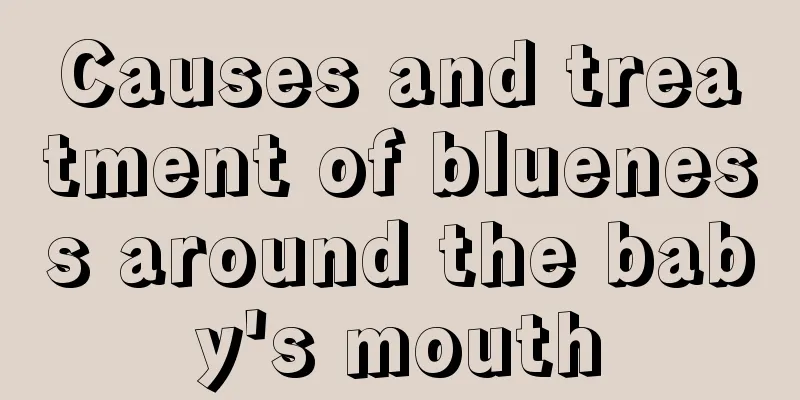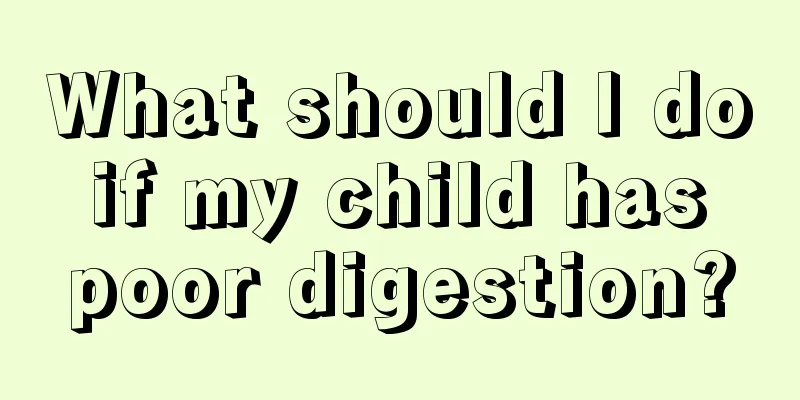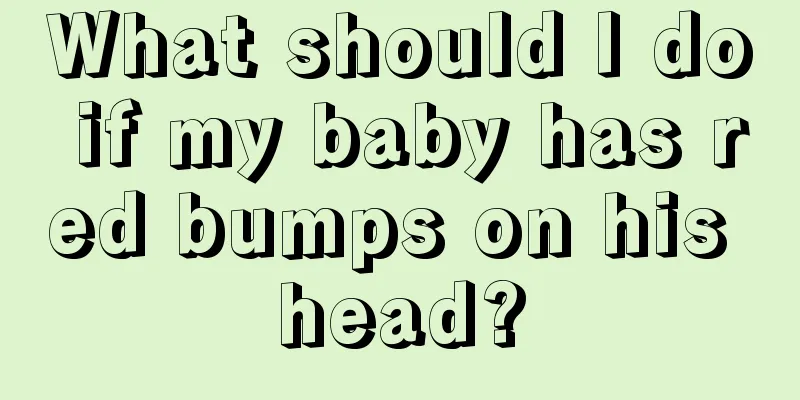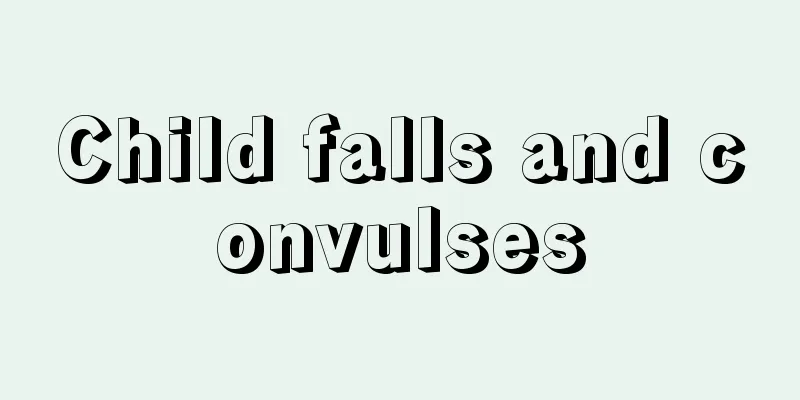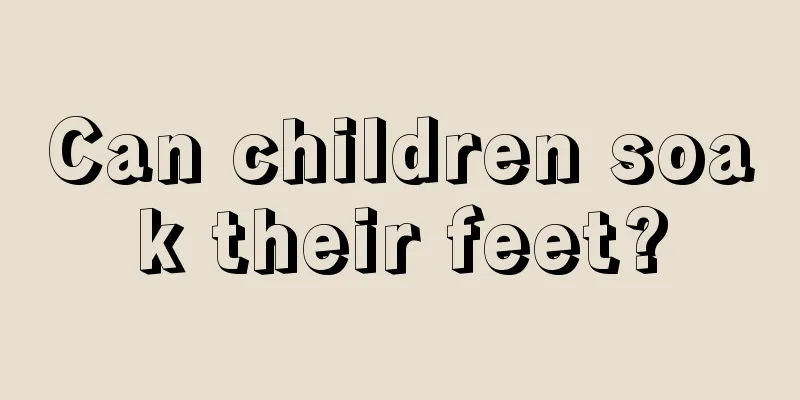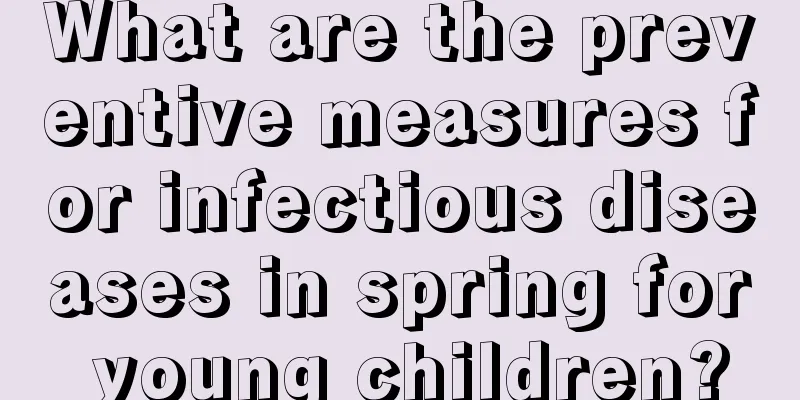How to treat a 5-month-old baby with cough and phlegm?

|
Many parents will find that the probability of babies catching colds is very high, especially in winter when many babies catch colds. The most common symptom after a cold is coughing. If it is not controlled, it will develop into pneumonia and may even develop into more serious diseases. If the disease is well controlled, the cough can be prevented from becoming more serious. The cough can be a dry cough or a phlegm cough, and the sound of the cough is different. The child needs symptomatic treatment. So how to treat a 5-month-old baby with phlegm cough? (1) Drug treatment ① Expectorants: If chronic cough is accompanied by phlegm, expectorant should be the principle. Do not simply suppress cough to avoid aggravating or causing airway obstruction. You can use N-acetylcysteine, aminosulphonate hydrochloride, guaifenesin glyceryl ether, myrtle oil and traditional Chinese medicine expectorants. ② Antihistamines: such as chlorpheniramine, loratadine, cetirizine, etc. ③ Antimicrobial drugs: Antimicrobial drugs may be considered for patients with chronic cough who are clearly infected with bacteria, Mycoplasma pneumoniae, or Chlamydia. People infected with Mycoplasma pneumoniae or Chlamydia trachomatis can choose macrolide antibiotics, including erythromycin, azithromycin, clarithromycin, etc. If antibiotics need to be adjusted after initial empirical treatment for infections caused by other pathogens, they should be selected based on the results of drug sensitivity tests. ④ Anti-asthmatic and anti-inflammatory drugs: including glucocorticoids, β2 receptor agonists, M receptor blockers, leukotriene receptor antagonists, theophylline and other drugs. It is mainly used for targeted treatment of CVA, EB, allergic rhinitis, etc. Reassess after 2-4 weeks of glucocorticoid treatment. Cough after infection can generally be relieved on its own. For those with severe symptoms, short-term use of inhaled or oral corticosteroids, leukotriene receptor antagonists or M receptor blockers can be considered. ⑤ Digestive system drugs: It is recommended to use H receptor antagonists such as cimetidine and prokinetic drugs such as domperidone. ⑥ Antitussive drugs: Antitussive drugs are not recommended for chronic cough, especially before the cause is clear, and the use of such drugs is related to the morbidity and mortality of some diseases. The American Academy of Pediatrics warns that codeine is contraindicated for the treatment of various types of cough. The sedative effect of phenergan may mislead parents into using the drug to reduce their children's noisemaking while ignoring the drug's adverse reactions, including irritability, hallucinations, abnormal muscle tone, and even respiratory apnea and sudden infant death. The adverse reactions were particularly evident in infants, leading the WHO to issue a warning: Phenergan is contraindicated in children under 2 years old and is prohibited as a cough suppressant. (2) Non-drug treatment Pay attention to removing or avoiding factors that induce or aggravate cough. Avoid contact with allergens, cold, and smoky environments; for sinusitis, nasal lavage and decongestant drugs can be performed; changing body position, changing food properties, and eating small meals frequently are effective for GERC; if there is a foreign body in the airway, the foreign body should be removed promptly; the best treatment for drug-induced cough is to stop the drug; for psychogenic cough, psychological therapy can be given; get vaccinated in time to prevent respiratory infectious diseases and respiratory infections. How to treat a 5-month-old baby with cough and phlegm? The treatment method adopted by the patient is mainly medication, and the most commonly used medication is oral medication. If the condition is serious, nebulization treatment can also be performed. Some hospitals advocate water infusion and anti-inflammatory treatment for children. In fact, this method is not good for the child's development. The patient is only five months old. Using too much anti-inflammatory medicine is not conducive to the treatment of future illnesses. Therefore, it is often recommended to use folk remedies or oral medications for treatment. |
<<: How to treat knee effusion in children
>>: What causes dry eyes in children?
Recommend
How to teach children to make friends?
Interaction between people is very important. A p...
Does hernia hurt when a child has it?
Some parents will suddenly find that their child&...
What is going on with a three and a half year old baby wetting the bed?
It is a common symptom for babies to wet the bed ...
Treatment of congenital heart disease in children
I don't know if you have heard of congenital ...
Treatment of wind-heat cold in children
Wind-heat colds in children are very common in ou...
What should I do if my baby's lips suddenly turn purple?
Everyone should have had this experience: on cold...
Children's nosebleeds in winter
Children's physical conditions are complex, a...
How long does it take for jaundice in children to subside?
Jaundice in children is more likely to occur in n...
What should I do if my child has been coughing for several months and still not getting better?
Although a mild cough is not a big problem, if yo...
What is the difference between a baby's puffiness and real obesity?
Obesity is the most common disease in life, and i...
Why does my baby have diarrhea and smell like rotten eggs?
Babies are the apple of their parents' eyes. ...
What is the correct way to care for a newborn baby?
The birth of a newborn baby into this world is a ...
What should I do if my child has a cold, fever, or sore throat?
Things like colds and fevers are definitely not a...
How to comb your child's hair to look good
If there is a baby girl at home, the mother alway...
What should I do if my six-month-old baby has a low-grade fever?
Many mothers worry about their baby's health,...
